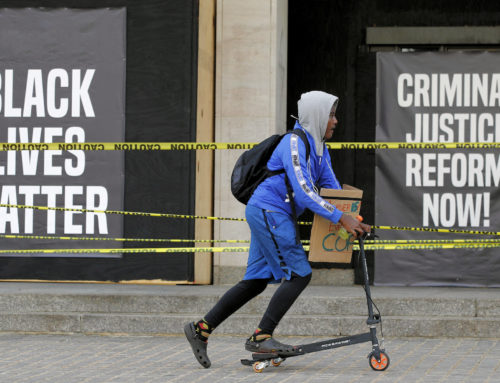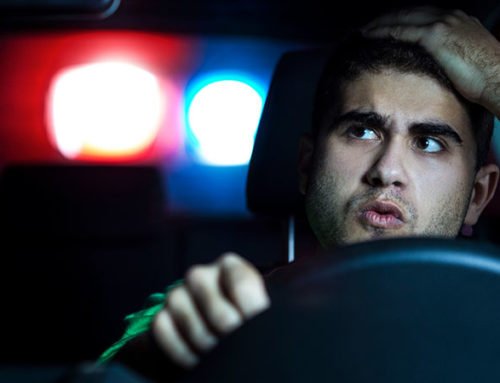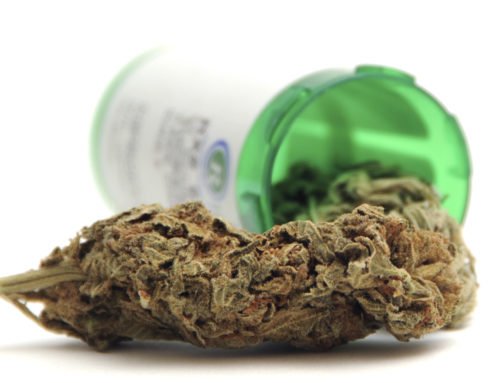The term “automatism” refers to involuntary or un-conscious behavior. When a person is being tried for criminal charges, automatism can be used by the criminal defense attorney as an affirmative defense.
Automatism is a type of legal defense in which the criminal defense lawyer argues that a person cannot be punished or held responsible for their crime or act because they were either not conscious when the act was carried out such as walking in their sleep, in a hypnotic state or suffering from concussion or epilepsy, or the crime was the result of an involuntary action such as loss of control over the muscles, a reflex action or a convulsion.
A criminal defense attorney, in defense of automatism, argues that since the crime was committed without any intention, reason or will, there is a lack of actus reus (guilty act) or mens rea ( guilty mind). Hence, the person cannot be punished for it.
On the basis of the cause of the involuntary action, automatism can be divided into 2 types:
A criminal defense attorney establishes a case for insane automatism when the cause of the involuntary action is internal. This means that a crime is carried out by a person suffering from any mental disorder. According to the criminal code, a person cannot be held criminally responsible for a crime if they are suffering from a mental disorder because of which they were not able to realize the nature and consequences of the act.
A criminal defense lawyer forges a case of non-insane automatism when the cause of the involuntary action is external. This means that although the person guilty of the crime is capable of carrying out that particular action, they were not conscious or in control of things at the time of the crime being committed due to reasons beyond their control. This could be because of a reflex action, seizure, stroke, sleepwalking or a psychological shock or trauma. A good example of non-insane automatism is dissociation, where a person may become detached from a situation due to post-traumatic stress, leading to involuntary actions.
There are certain causes for automatism defense which can become quite confusing. Take for example someone who has diabetes. Having too much insulin or not any when needed can lead to malfunctioning of the mind. Depending on weather this person suffers from hyperglycemia or hypoglycemia, the defense can go either way, with insane or non-insane automatism. A hypoglycemic diabetic, or one who has low blood sugar, could overdose on his or her insulin, leading to potential involuntary actions. These involuntary actions would have been caused by the insulin which is an external factor (non-insane automatism).
Now let’s switch sides to a hyperglycemic diabetic, or one who has high blood sugar. If a hyperglycemic fails to inject their insulin, leading to potential involuntary actions, it would be the diabetes (an internal factor) rather than the insulin which lead to the actions. This would now be seen as insane automatism.
Although automatism operates under the common law and it can be used as a defense to any crime, there are few cases of successful pleas of automatism. This is because it is harder to prove and defend it in the court. Strong evidences need to be provided such as a testimony by a psychiatrist or a doctor to prove that the crime a person is alleged for was an involuntary action. Also, a criminal defense attorney needs to prove that the involuntariness or the loss of control was not self-induced such as by consumption of alcohol or any drug.
The court has also established different rules for the cases of insanity and non-insane automatism. Therefore, they are handled differently and only the best criminal defense attorney knows how to present a case of automatism to defend the guilty from being arrested or punished for the crime. Visit www-greaveslaw-com.marswebudev.staging.wpengine.com to hire the best attorney for presenting a successful defense of automatism.










 [/one_fourth][one_fourth spacing=”yes” last=”no” center_content=”yes” hide_on_mobile=”no” background_color=”” background_image=”” background_repeat=”no-repeat” background_position=”left top” link=”https://www.google.com/search?q=craig+greaves+google+review&rlz=1C1CHBF_enUS706US707&oq=craig+greaves+google+review&aqs=chrome..69i57.4724j0j7&sourceid=chrome&ie=UTF-8#lrd=0x864681a2e536064b:0xf68c5e64fac79532,3″ target=”_blank” hover_type=”none” border_position=”all” border_size=”” border_color=”” border_style=”solid” padding-top=”” margin_top=”” margin_bottom=”” animation_type=”0″ animation_direction=”down” animation_speed=”0.1″ animation_offset=”” class=”button_pop-up” id=””]
[/one_fourth][one_fourth spacing=”yes” last=”no” center_content=”yes” hide_on_mobile=”no” background_color=”” background_image=”” background_repeat=”no-repeat” background_position=”left top” link=”https://www.google.com/search?q=craig+greaves+google+review&rlz=1C1CHBF_enUS706US707&oq=craig+greaves+google+review&aqs=chrome..69i57.4724j0j7&sourceid=chrome&ie=UTF-8#lrd=0x864681a2e536064b:0xf68c5e64fac79532,3″ target=”_blank” hover_type=”none” border_position=”all” border_size=”” border_color=”” border_style=”solid” padding-top=”” margin_top=”” margin_bottom=”” animation_type=”0″ animation_direction=”down” animation_speed=”0.1″ animation_offset=”” class=”button_pop-up” id=””] [/one_fourth][one_fourth spacing=”yes” last=”no” center_content=”yes” hide_on_mobile=”no” background_color=”” background_image=”” background_repeat=”no-repeat” background_position=”left top” link=”https://www.avvo.com/attorneys/77803-tx-craig-greaves-60538/write_review.html” target=”_blank” hover_type=”none” border_position=”all” border_size=”” border_color=”” border_style=”solid” padding-top=”” margin_top=”” margin_bottom=”” animation_type=”0″ animation_direction=”down” animation_speed=”0.1″ animation_offset=”” class=”button_pop-up” id=””]
[/one_fourth][one_fourth spacing=”yes” last=”no” center_content=”yes” hide_on_mobile=”no” background_color=”” background_image=”” background_repeat=”no-repeat” background_position=”left top” link=”https://www.avvo.com/attorneys/77803-tx-craig-greaves-60538/write_review.html” target=”_blank” hover_type=”none” border_position=”all” border_size=”” border_color=”” border_style=”solid” padding-top=”” margin_top=”” margin_bottom=”” animation_type=”0″ animation_direction=”down” animation_speed=”0.1″ animation_offset=”” class=”button_pop-up” id=””] [/one_fourth][one_fourth spacing=”yes” last=”yes” center_content=”yes” hide_on_mobile=”no” background_color=”” background_image=”” background_repeat=”no-repeat” background_position=”left top” link=”https://www.yelp.com/biz/the-law-office-of-craig-m-greaves-bryan” target=”_blank” hover_type=”none” border_position=”all” border_size=”” border_color=”” border_style=”solid” padding-top=”” margin_top=”” margin_bottom=”” animation_type=”0″ animation_direction=”down” animation_speed=”0.1″ animation_offset=”” class=”button_pop-up” id=””]
[/one_fourth][one_fourth spacing=”yes” last=”yes” center_content=”yes” hide_on_mobile=”no” background_color=”” background_image=”” background_repeat=”no-repeat” background_position=”left top” link=”https://www.yelp.com/biz/the-law-office-of-craig-m-greaves-bryan” target=”_blank” hover_type=”none” border_position=”all” border_size=”” border_color=”” border_style=”solid” padding-top=”” margin_top=”” margin_bottom=”” animation_type=”0″ animation_direction=”down” animation_speed=”0.1″ animation_offset=”” class=”button_pop-up” id=””] [/one_fourth]
[/one_fourth]